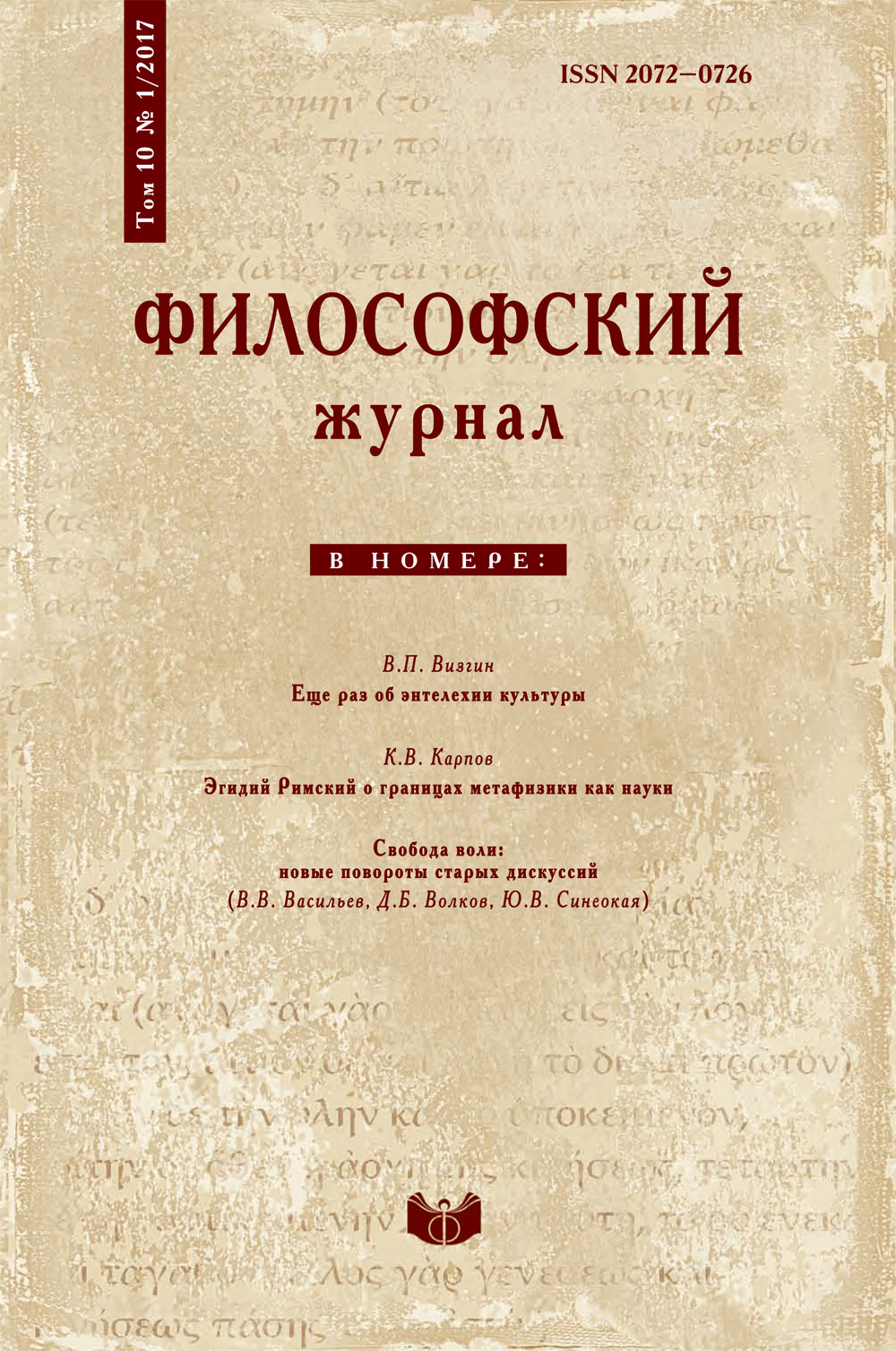Giles of Rome on the limits of metaphysics as a science
DOI:
https://doi.org/10.21146/2072-0726-2017-10-1-23-34Keywords:
metaphysics, scientific knowledge, supreme happiness, separate substances, Giles of Rome, Aquinas, Albert the Great, Boethius of DaciaAbstract
Though the problem of the status of metaphysics as a science seems to be a technical one, it occupies an important place in the philosophical and theological systems of scholastic philosophers. This is due to its connection with other metaphysical, epistemological, or ethical, agathological, and even theological issues (such as, e.g., the distinction between metaphysics and theology, the first object known by the human mind,the question of what supreme happiness consists in and whether it is attainable, what are the good and the goods available to human beings in this life, etc.). Prerequisite to solving the problem of scientific status of metaphysics, therefore, is finding a solution to each of the aforementioned issues. The present article examines the two approaches to the metaphysics status problem which Giles of Rome attempted at different stages of his career. The analysis of either of these attempts requires taking into account a number of collateral questions such as the human ability to know separate substancesex puris naturalibu sor to achieve supreme happiness in via. The author sets to demonstrate that at the early stage of his career Giles of Rome took a rather optimistic position in evaluating the capacity of human beings to know being qua being, which constitutes the subject matter of metaphysics; he assumed that man can know separate substances and that his supreme happiness lies in the knowledge of beings which can be attained through metaphysics. In his later period, Giles evaluated human epistemic capacities pessimistically. He thought that due to the connection of soul with the body human beings are only able to err, and the only help that is available (by no means always or often) comes from discursive reasoning, i.e. logic.






